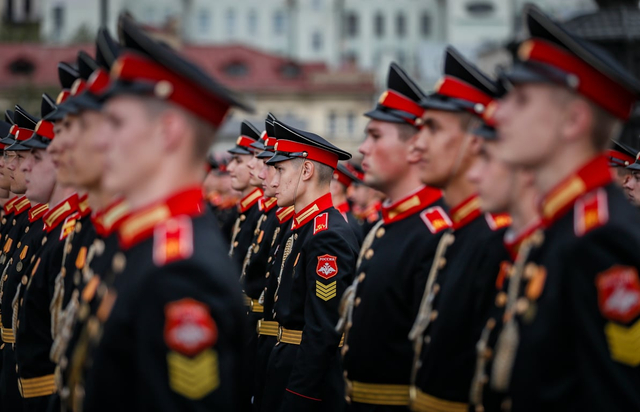
The independent news site iStories ran a story on Wednesday showing how cadets at Russian military institutions and their families are complaining that attempts to resign are being blocked. Even worse, the military contracts that they de facto signed up to when they entered their training establishment have, following Russian President Vladimir Putin’s September 2022 decree number 647, effectively become permanent.
While no official ban on contract termination exists, reports indicate that unspoken Kremlin instructions have been issued compelling the military to retain personnel. With Russia facing increasingly dire manpower shortages caused by the losses incurred in the ill-fated “special military operation,” the situation has worsened.
JOIN US ON TELEGRAM
Follow our coverage of the war on the @Kyivpost_official.
A February 2025 UK Ministry of Defence intelligence update citing the independent Russian outlet Verstka, said that Russians contracted into the armed forces since the 2022 full-scale invasion of Ukraine have effectively signed indefinite contracts, making it nearly impossible to resign. Even those who suffer severe injuries are often forced back to the front and those who object risk being sent to “storm” units to feed Moscow’s “meat grinder” assaults.
You’re (staying) in the army now – Russia’s enforcement tools
The toolbox for preventing release from a military contract is extensive:
Legal ambiguity – The Russian laws on “military duty and service” are [probably intentionally] vague in relation to the right of resignation. This legal ambiguity allows military commanders to reject such requests without explicitly breaking the law – release or dismissal from the service can only be authorized by the Ministry of Defense.
Other Topics of Interest
ISW Russian Offensive Campaign Assessment, October 28, 2025
Latest from the Institute for the Study of War.
Administrative obfuscation – Cadets report that their requests are being ignored, lost, or stuck in some bureaucratic limbo often after they have been transferred to remote bases or threatened with criminal charges for unauthorized absence if they leave.
Psychological and legal pressure – Many are blackmailed or face extortion over the slightest infraction of “military discipline,” along with psychological pressure from superiors, military enlistment offices, their peers, and appeals to their loyalty. Some allege that officials have threatened the safety of their family members.
Digital conscription system – Since the implementation of Russia’s digital conscription registry in April 2023, electronic summonses are legally considered delivered the moment they appear online. Once a summons is issued, severe restrictions are put in place, which include a ban on leaving the country, obtaining a loan, or selling property – with the risk of facing criminal charges if they do not comply.
Increased mobilization and conscription – The age for mandatory military service has been increased, and laws have been tightened to limit exemptions – the latest changes being ordered just this month to allow year-round conscription and increased pressure on those already conscripted to sign contracts which would allow them to be deployed to the Ukrainian war zone.
Trying to find a way out
In June the human rights organization Shkola Prizyvnikov (Conscript School) reported increasing numbers of complaints about individuals being coerced into enrolling in military academies which effectively includes signing service contracts. They say that “The scheme… [ensures] that the service member remains on contract, even if they change their minds about enrolling.”
Faced with this “Catch 22” situation, cadets have tried a number, increasingly desperate measures to get out of the war:
Social media – Many cadets have turned to social media to publicize their situation, which is currently in danger of being checked, as the Russian authorities tighten up controls on the internet. In August, Putin made it illegal to use Virtual Private Networks (VPNs) to bypass state-monitored servers – partial blocking of WhatsApp and Telegram, and outright bans on Signal, Discord, and Viber messaging apps that had failed to open their communications traffic to Russian official oversight.
Human rights organizations – the Putin regime pays little, if any, attention to human rights concerns or appeals through the Russian courts. Sergei Krivenko, director of the human rights group “Citizen.Army.Law” is cited by iStories as saying: “Enrolling in a military academy now is like being trapped in a mousetrap: it snaps shut, and you can’t do anything.” Alexey Tabalov, director of Conscript School suggests there is no option but for cadets to resign themselves to going to war unless they can seek a discharge on health grounds, which he says, “is practically impossible.”
Desertion or sabotage – there are numerous reports of cadets absenting themselves or damaging equipment in an attempt to escape service despite the threat of criminal charges, for which the penalties have also become more severe, after which they are more than likely to be sent to the storm battalions, placing themselves in an even worse situation.




